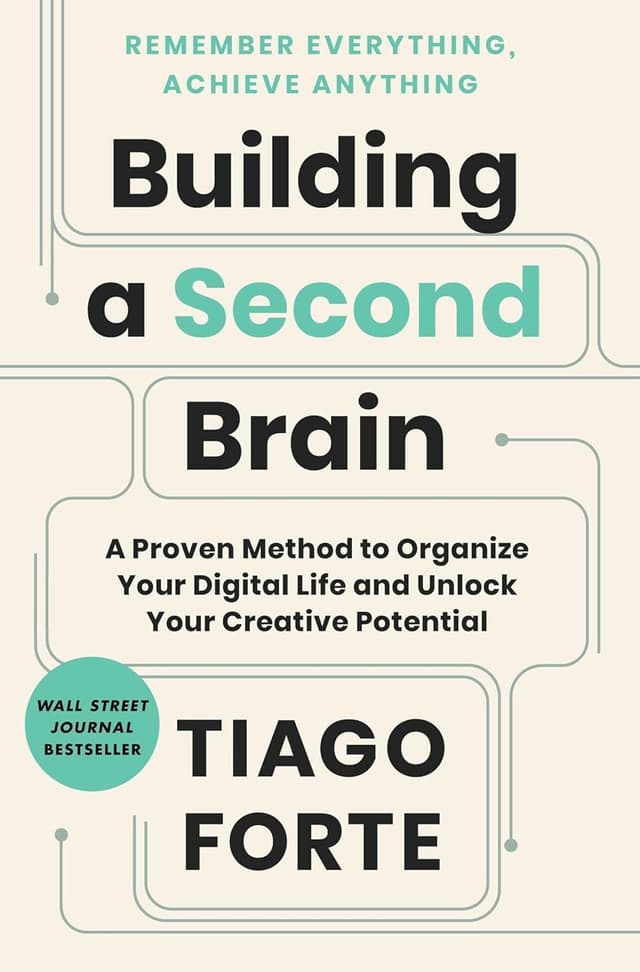Colin Nagy | May 13, 2019
Why is this interesting? - The Refugee Edition
On refugees, expertise, and employment
Recommended Products

Building a Second Brain is a course by Tiago Forte that promises to help you learn how to capture, organize, and retrieve your ideas and insights using digital notes. It offers a systematic approach and tools that you can trust to support creative breakthroughs in your work.
Colin here. The massive movement of refugees across borders — amid war, famine, and persecution — has dominated the news cycle for years. This human flow in the words of Chinese dissident artist Ai Weiwei, is a tragic story of epic proportions. The numbers are staggering: the UN estimates the Syrian crisis alone has generated roughly 13 million displaced people from a pre-war population of 22 million.
But while many media outlets focus on refugee camps or the strains faced by European welfare states, there’s been a collective failure to highlight the more significant stories of opportunity.
As a refugee, once you’ve fled your homeland, finding employment is tough. Earning opportunities are often informal, due to limited working permits. Taxes and paperwork are burdens, not to mention the various forms of discrimination stemming from years of animosity between countries. The Lebanese don’t exactly love the Syrians. Such factors help to explain why you’re likely to see a Syrian surgeon shining shoes in Beirut or an Afghan engineer driving an Uber in Brooklyn.
Why is this interesting?
It’s easy to see the dormant intellectual capital just waiting to break free. The academic world spotted it early. Carmen Bachmann, a professor at Leipzig University, writes: “A refugee’s academic training and intellectual interests travel with them wherever they go and follow their flight… If refugees are given the necessary resources, networks, and opportunities, they can reconnect with their true identities.”
Bachmann’s organization, Chance for Science, connects refugee academics with German counterparts based on their expertise. The goal is to encourage idea-sharing and to introduce refugee academics to the latest research in their fields of knowledge. Hundreds of refugees have already signed up. The benefits are as simple as giving strong minds a day’s work, as well as contributing to a corpus of academic knowledge.
Of course this idea is noble and forward-thinking, but the opportunity is far larger, particularly for startups and the business world. Just how many incredible computer programmers are sitting in a tent? How many refugee doctors and researchers can contribute meaningfully to those seeking to reinvent and transform industries? How big is the wasted talent in this “lost” generation?
In the West, startup founders often bemoan the fight for talent amid fierce competition. So why not cultivate talent that’s not being put to use? Where’s the Y Combinator — a seed accelerator focused on inventing the future — for displaced persons?
Promising examples are starting to take root. Techfugees is a nonprofit that leverages global tech talent to improve the lives of refugees but could be even better if refugees were involved in the building (in time). Similarly, the Entrepreneurial Refugee Network (TERN) is a UK-based organization that empowers refugees to start businesses and provides early-stage counsel and education on how to get started, as well as mentorship roles with seasoned experts.
But what about more programs on-site in camps themselves — a mobile platform to match up skilled professionals with projects that need specific expertise? Even the nobility of a simple day’s contribution beats idle time and can also build relationships and forge new skills.
Across the world, the status quo is dark. No Gulf countries are taking in refugees. Russia, Japan, Singapore and South Korea have offered zero resettlement. Because of political pressures, doors are closing and will continue to close.
As professor Bachmann writes, “When all else is left behind, a refugee’s knowledge remains within them.” It’s time to re-cast the crisis as one of the largest missed opportunities to unlock intellectual capital in modern history. It is time to paint this as an opportunity — not a burden.
Who is doing interesting stuff in this realm? Hit reply and drop us a line. (CJN)
Train of the Day:
Testing started in Japan last week for the new fastest train in the world. “To cope with massive wind resistance when entering tunnels, the Alfa-X’s first car will mostly be a sleek nose, measuring 22 meters (72 feet). With just three windows, there looks to be hardly any space, if at all, for passengers in the front. Painted in metallic silver with green stripes, the 10-car bullet train begins test runs Friday between the cities of Aomori and Sendai at night, to be conducted over three years.” (NRB)

Quick Links:
Per the Evernote/digital archiving edition last week, apparently there’s a whole course called “Building a Second Brain” by Tiago Forte that promises to help you “learn how to capture, organize, and retrieve your ideas and insights using digital notes, with a systematic approach and tools that you trust to support creative breakthroughs in your work.” Here’s the introduction video on YouTube. (via this excellent thread from Venkatesh Rao.) (NRB)
Brutal but important reporting on how Assad smashed dissent in Syria (CJN)
This Nike page with all the special “City Edition” jerseys Nike made for the NBA this season along with design explanations is pretty excellent. I also found a typo in their Minnesota Timberwolves explanation (Price = Prince): “The Minnesota City Edition uniform has recognizable details from the outfits that the artist Price wore in his music videos.” (NRB)
Thanks for reading,
Noah (NRB) & Colin (CJN)